London's Oyster card: Are its days numbered?
- Published
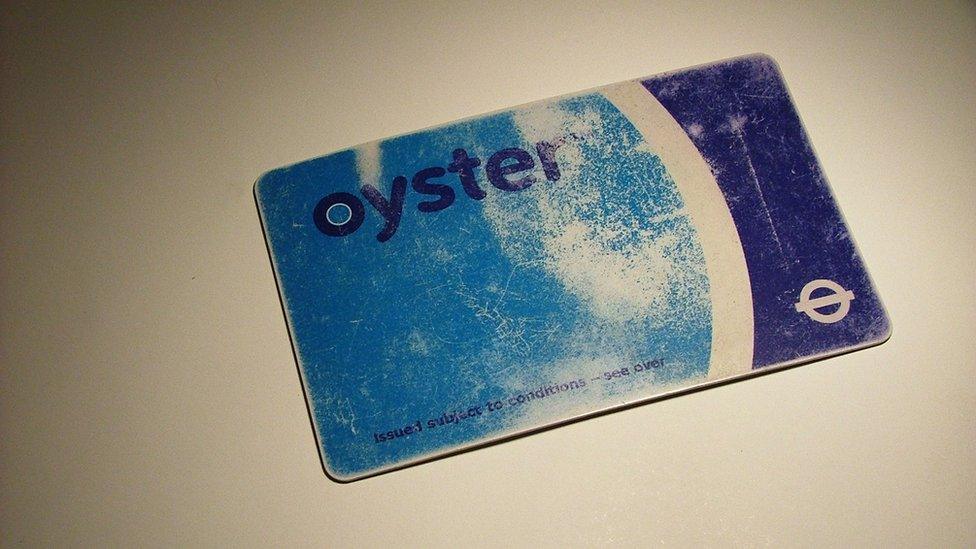
Alternative but ultimately rejected names for the Oyster card were "Pulse" and "Gem"
Earlier this year, Transport for London announced it would no longer be allowing Oyster card top-ups at ticket office windows at rail or Overground stations. Are the days of this pioneering piece of blue plastic numbered?
"When I visit London, in objection to Orwellian surveillance, I will reject the Oyster card," wrote one disgruntled correspondent to the Independent's letters page when the scheme was launched in 2003.
Back then, your bus might have been bendy and cost between 70p and £1 to board. You may even have listened to Busted on your portable CD player while whizzing around London.
Nokia was the dominant manufacturer of mobile phones. Indeed, one of Oyster's selling points was that it could be topped up like a mobile phone card using a telephone, or via the still-mysterious-to-millions internet - less than half of UK households had it in 2003.
In the decade after its launch, the Oyster card became increasingly popular, especially after train operators in Greater London started accepting it in 2010. It would become part of the fabric of life in the capital - there are now more unused Oyster cards than there are people in the UK.
Four years after the card made its debut, contactless payment was launched in the UK although back in 2007, when the transaction limit was £10, contactless wasn't an option on Tubes and trains.
Fast-forward to 2021 and there are now three times as many contactless pay-as-you-go bank card users than there are Oyster loyalists. This has led to a growing colony of Oyster cards that haven't been used for at least a year - about 82m of them - and passengers' cash in the coffers of Transport for London (TfL) totalling more than £550m.
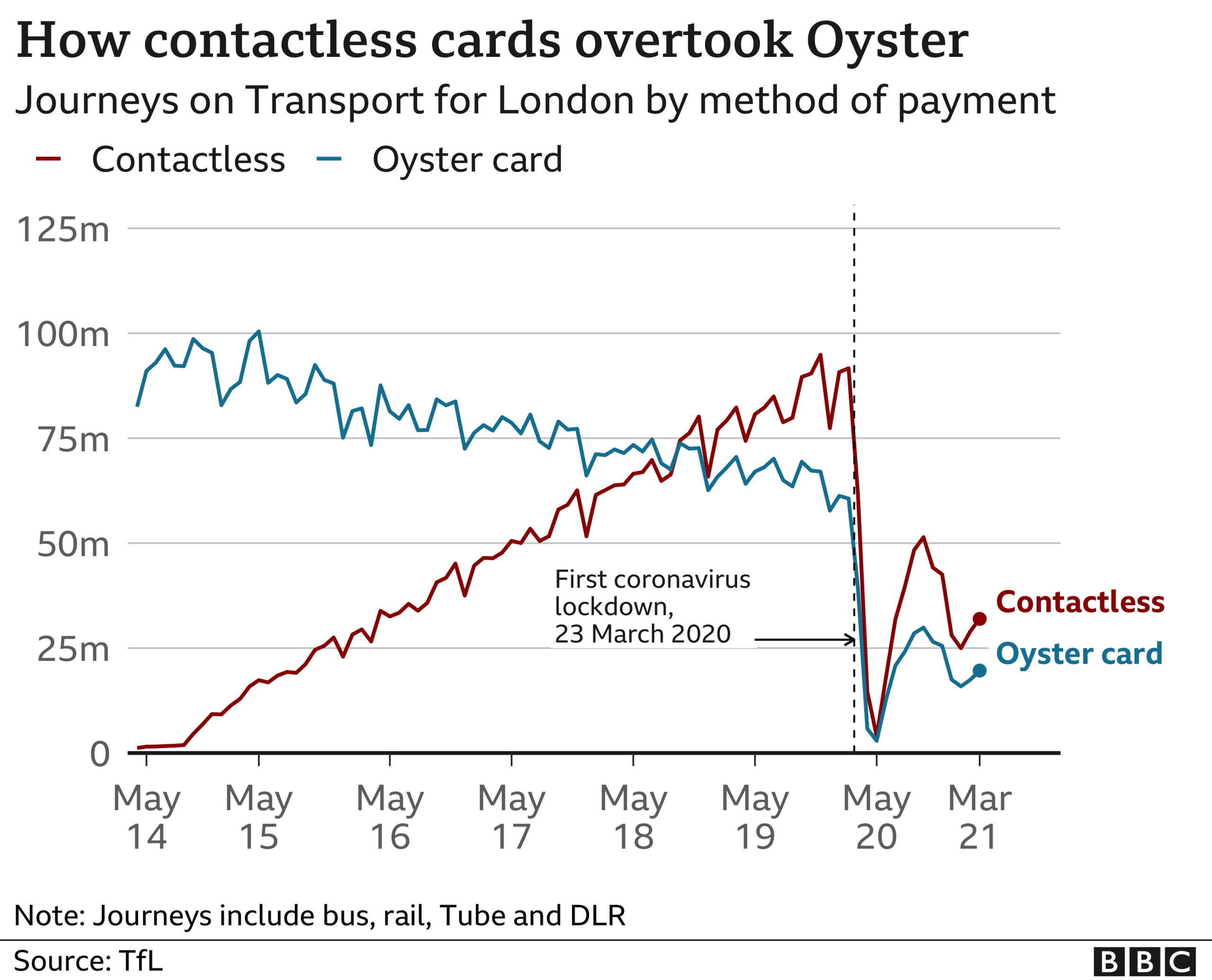
Another area of growth is mobile payment.
About a quarter of contactless payments are now made using either Apple or Google Pay, a figure that is ticking up all the time.
In contrast, only 5.7m of the tens of millions of Oyster cards in circulation are still active. And as for paper tickets, in the past month just 1.7% of passengers bought them.
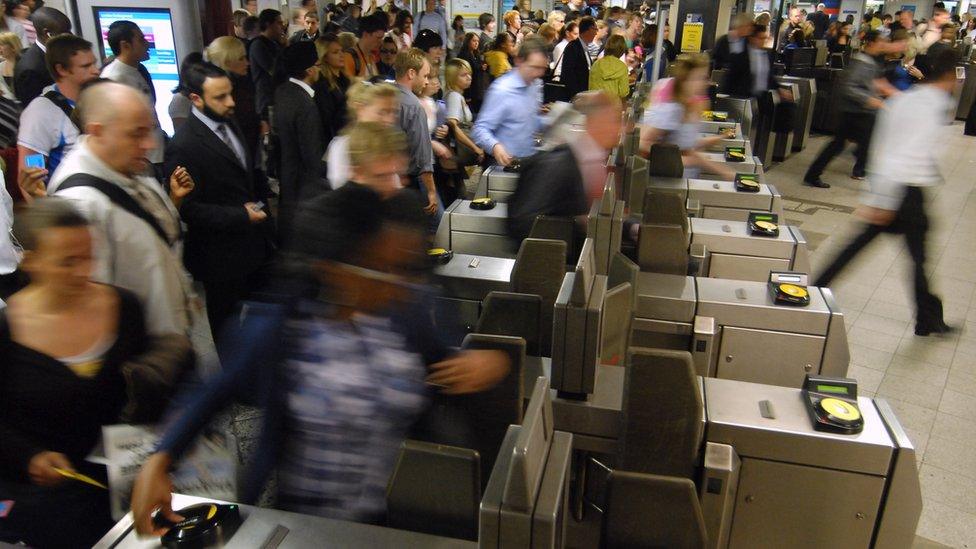
However, there are no plans to stop offering an Oyster option, according to TfL's head of customer payments Mike Tuckett, who joined the ticketing team just after the contract to deliver the technology for the Oyster card was signed in 1998.
He said: "I can't imagine a situation where everyone either will have a bank account and card suitable to pay and wants to.
"You try to steer away from forcing or strong-arming people into an option; it's about letting people naturally migrate towards it.
"There's a section of the market that can't or won't use contactless so Oyster is the best and most natural solution we'll continue to offer. We've always seen them as sister options that co-exist. It's very helpful for us and for customers."
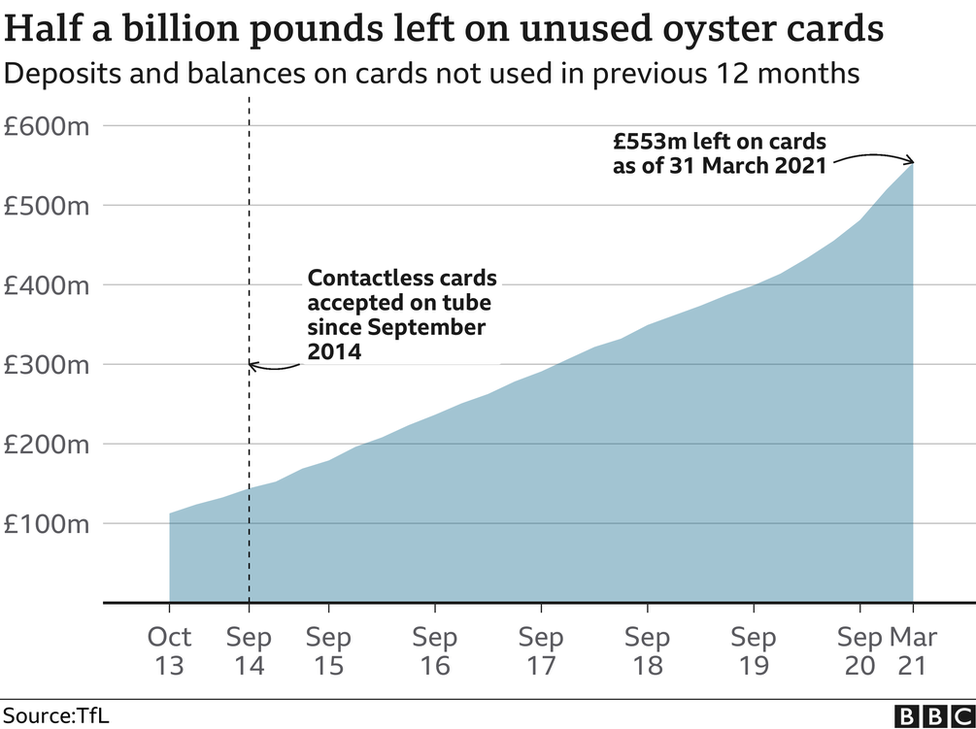
Removing the Oyster card could cause problems for those on or below the poverty line, says social historian Liz McIvor.
Oyster cards provide a way for Freedom Pass holders - those aged over 60 - to receive free travel, while Zip cards provide free and discounted travel for those aged under 18.
She said: "One of the biggest inequalities of modern tech and the widening gap is digital poverty, because there are people who are very reliant on their digital packages who take for granted their access to the internet.
"There are still a lot of people paying in cash who could be flying under the radar.
"If you do remove one-on-one payments and totally automate there's a group of people unable to use the service properly - or [have to] illegally - because they don't have a choice."
Mr Tuckett points out that TfL's commitment to Oyster is demonstrated by a new system due to be in place by the end of the year. It will see Oyster payments capped at the weekly travelcard limit, as is already the case with contactless cards.
This will enable TfL to meet a pledge made when Oyster came into existence, that it would always be the cheapest payment option.
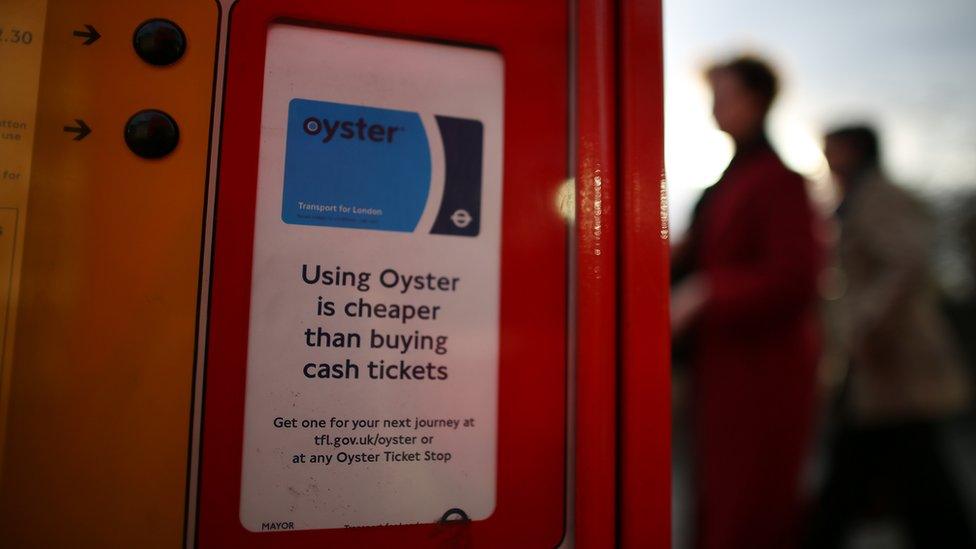
He said: "We're investing in Oyster to develop it - we wouldn't be doing that if we were thinking of retiring it. It's iconic.
"It's hard to contemplate [a future without Oyster] because it's absolutely right that TfL has to be inclusive in its approach to customers."
The Oyster card system will cease to exist within the next decade, though, predicts author and rail historian Christian Wolmar, even though it was a "fantastic change" when it was introduced.
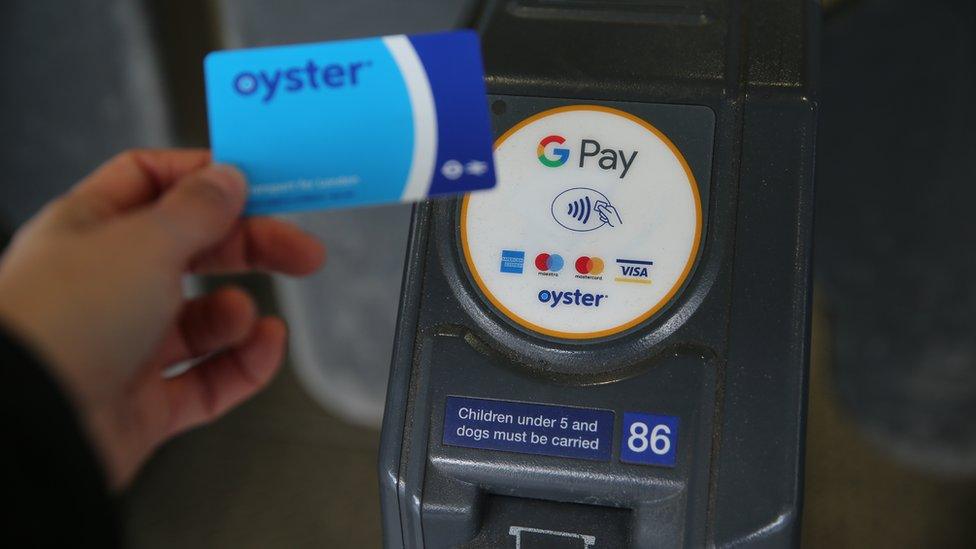
He cites the "big fuss" made over the move to cashless buses in 2014 as an example of something people go on to find they can cope with.
He said: "Ultimately, I would disagree with TfL. It has a limited lifespan. As the older generation die out, there'll be very few people who are stuck with cash and the pandemic has accelerated that process.
"There are transport systems around the world where you can't pay by cash any longer.
"We move on."